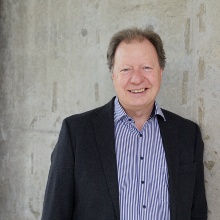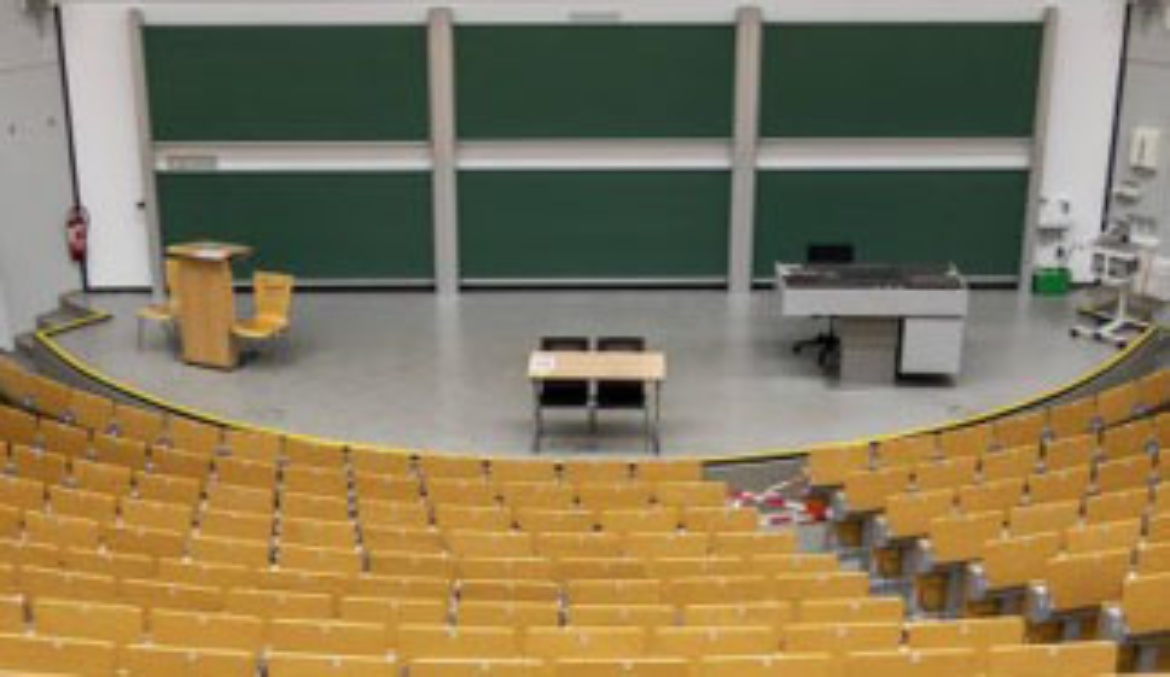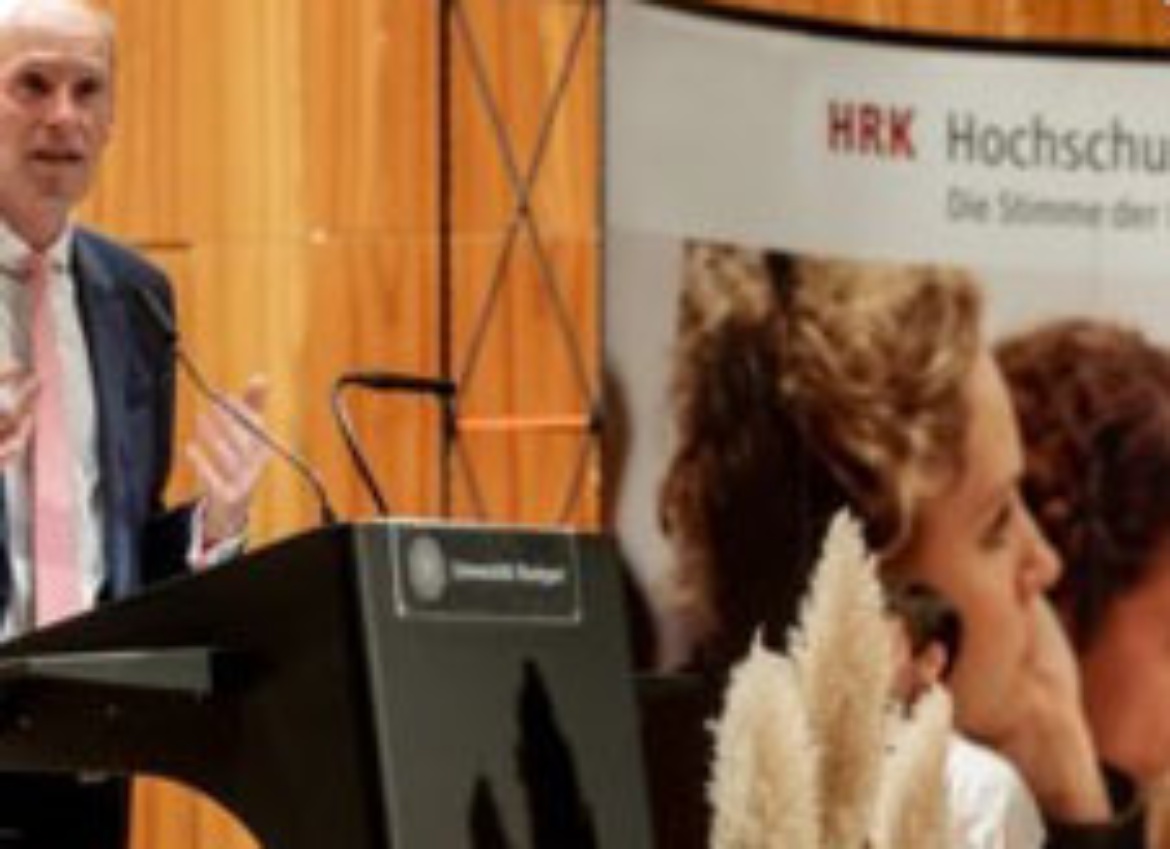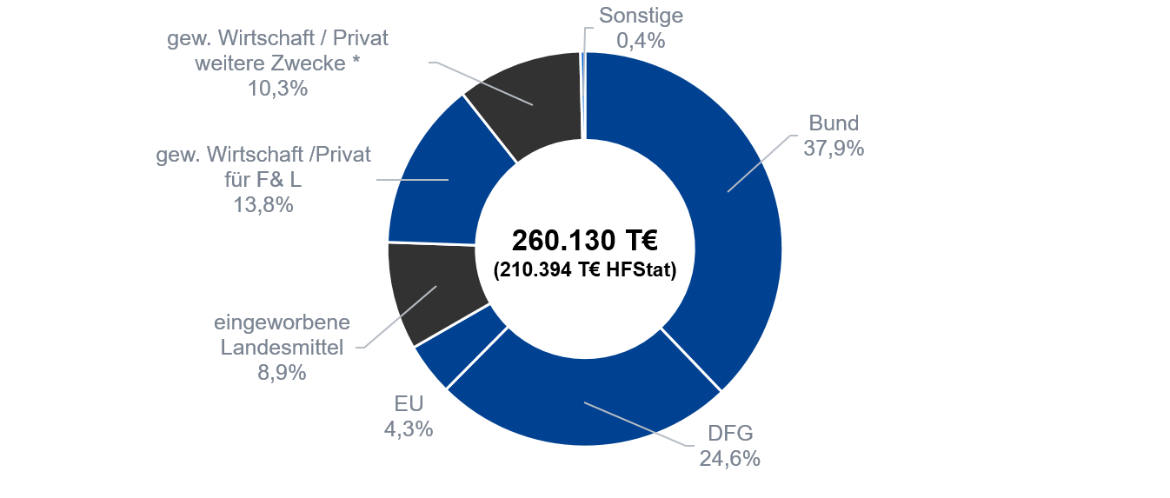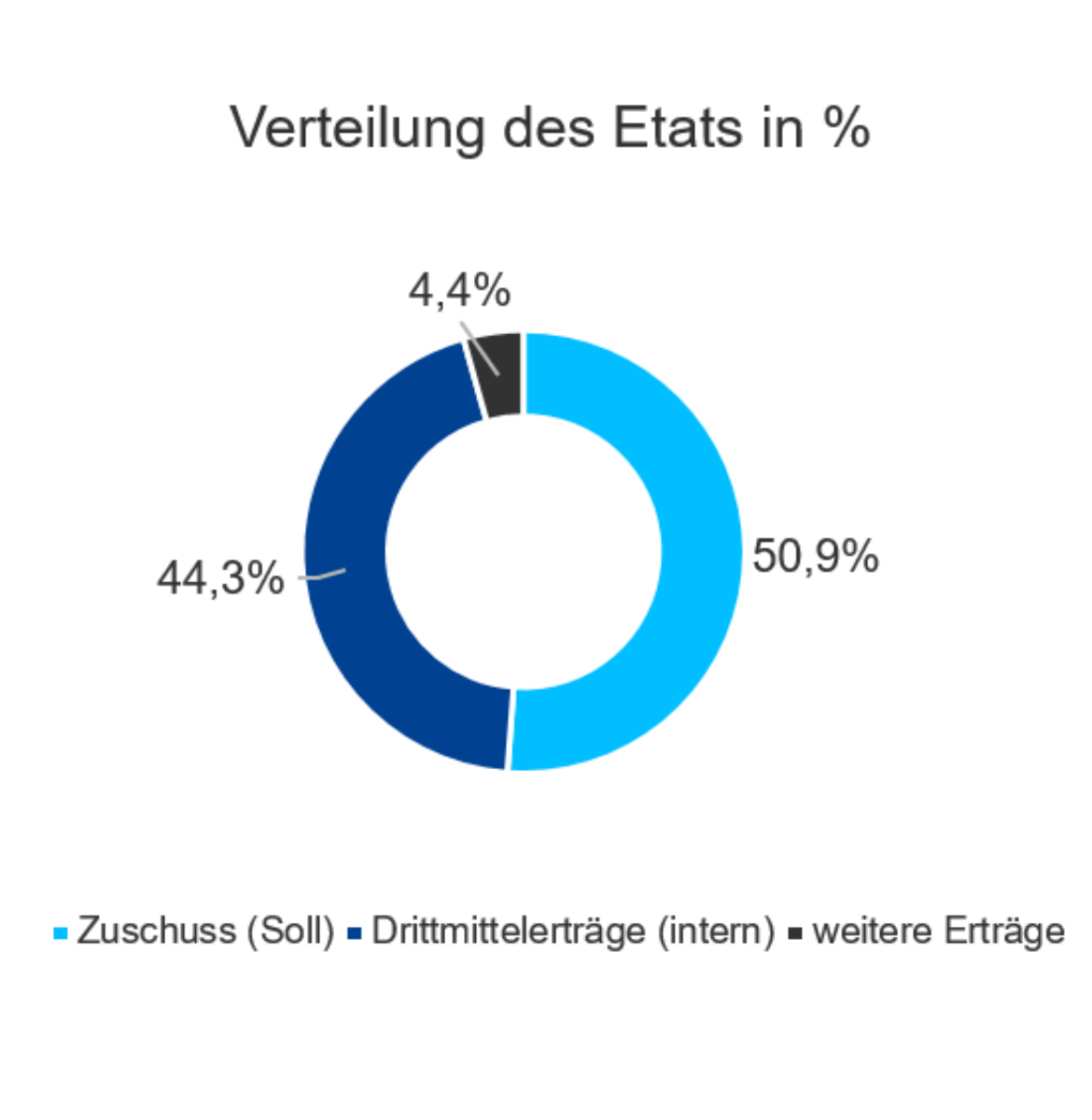“The past year was dominated by the pandemic. The campus was deserted and the doors locked; the Vaihingen campus resembled a ghost town,” says Prof. Wolfram Ressel, Rector of the University of Stuttgart. “We had to work a lot of magic. But we did it. We managed to ensure high-quality teaching. The Minister of Science was thrilled with everything we had accomplished,” says Ressel, taking the opportunity to thank everyone involved. A positive aspect is that a framework for remote working was developed. “We want to give the option of remote working beyond the pandemic by service agreement,” says Ressel.
He reported his concern that third-party funding would plummet because of the pandemic and is pleased that revenues actually increased instead. Contributing to this was the second round of funding for Collaborative Research Center SFB 1313 “Interface-Driven Multi-Field Processes in Porous Media – Flow, Transport and Deformation” and the funding for Research Training Group 2642 “Towards Graduate Experts in Photonic Quantum Technologies”, an interdisciplinary training program for photonic quantum engineers.
The latest research news
Many research projects, including the QRydDemo project, the aim of which is to prototype the quantum computer, attracted third-party funding. The University of Stuttgart is involved in 10 Collaborative Research Centers and four Research Training Groups and has obtained 12 ERC grants.
Ressel also mentions other research projects, including the two new DFG priority programs (SPP). The aim of “Daring More Intelligence” is to bring about a sustainable paradigm shift in the design process. The second project focuses on the robust coupling of continuum biomechanical models for active biological systems as a precursor to clinical applications. Another major research project is FlashPhos, the aim of which is to develop a process to recycle sewage sludge to produce white phosphorus. According to Ressel, the acquisition of numerous other collaborative projects shows, among other things, the success of the Stuttgarter Weg (Stuttgart Way) of placing a strong focus on interdisciplinarity.
Teaching in the third year of the pandemic
“After three semesters of largely online teaching, our focus is now on in-person teaching,” says Ressel. In the current summer semester, 80% of the teaching consists of in-person courses and 20% of online courses. The creation of additional learning spaces on campus is an important issue. “It was a real problem. But now it’s getting better.”
Milestones in teaching during the reporting period include successful participation in the continuation tender of the MWK fund “Erfolgreich Studieren BW”, the conceptual further development of the area of interdisciplinary key competencies, and the project “digit@L – digital learning and teaching at the University of Stuttgart: Boost. Skills. Support.” funded by Stiftung Innovation in der Hochschullehre. “We now want to work out the positive aspects of online teaching and continue to offer it,” says Ressel. The University of Stuttgart is also participating in the joint project of Baden-Württemberg universities to develop the implementation of electronic examinations. Because there are still too many legal difficulties with electronic examinations, they have not yet been implemented at the University of Stuttgart.
Central Administration 4.0 and budget figures
Under the item Central Administration 4.0, Ressel mentions further progress in digitalization such as the digital invoice work flow and the development of the research information system, among other things.
Ressel comments on the distribution of third-party funding revenues totaling €260.1 million (Figure). DFG funding is 24.6%. Here, Ressel cites 30% as a goal. With regard to EU funds, he would also like to see a higher proportion. He is proud of the good performance of the university in the nationwide comparison of third-party funding per professor – which is €665,000 and thus in 3rd place – as well as the DFG grants for universities and disciplines, excluding medicine. DFG awards in the humanities and social sciences also rank 3rd in a national comparison.
The total budget of €587.4 million consists mainly of third-party funding income and the subsidy from the state in accordance with the budget. It also includes special funds for upgrading digital teaching, which Ressel is quite pleased about. These did not exist in other federal states. At the end of his report, Ressel discussed the development of student numbers; as with all technical universities, these are declining. According to him, this is also a social problem. The Ministry of Science has therefore formed a working group on the issue.


